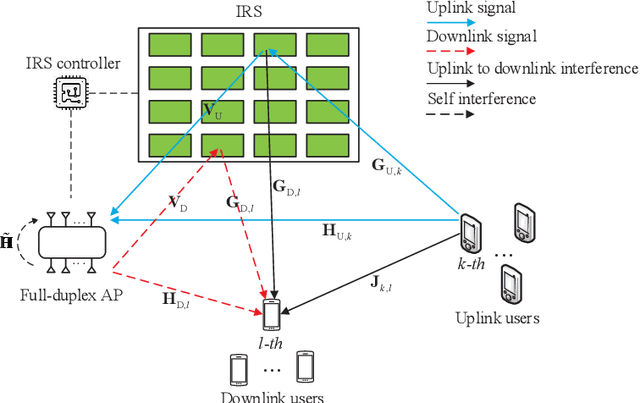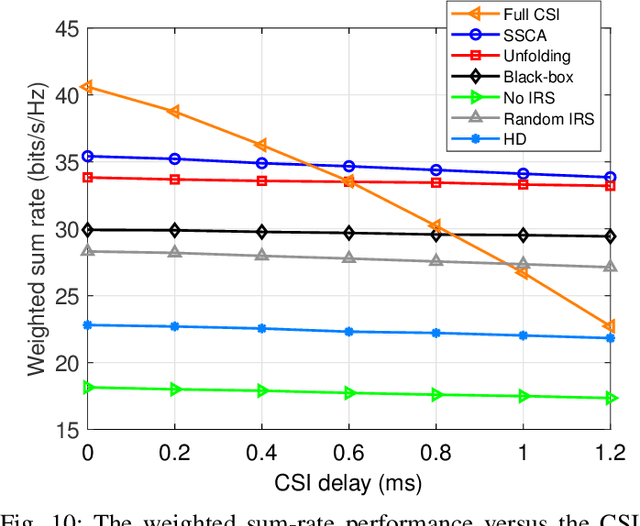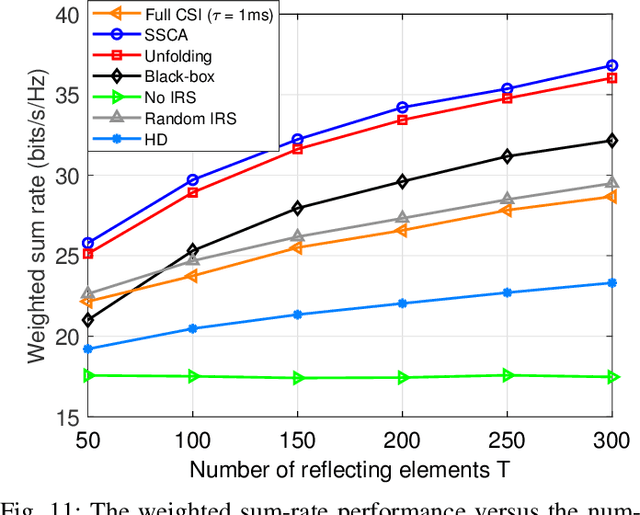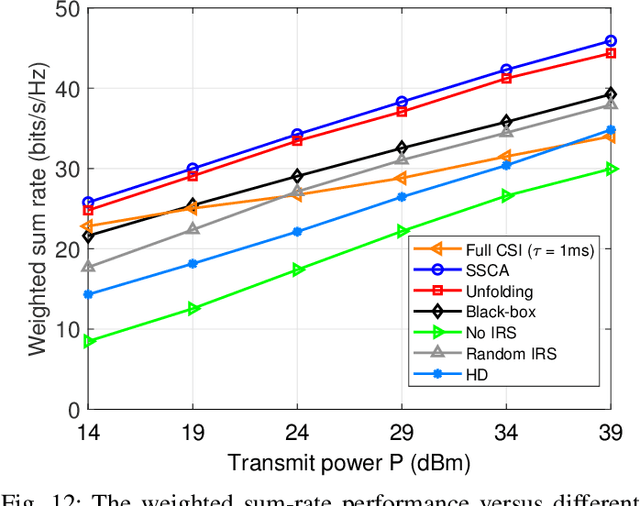Deep-Unfolding Beamforming for Intelligent Reflecting Surface assisted Full-Duplex Systems
Paper and Code
Dec 04, 2021



In this paper, we investigate an intelligent reflecting surface (IRS) assisted multi-user multiple-input multiple-output (MIMO) full-duplex (FD) system. We jointly optimize the active beamforming matrices at the access point (AP) and uplink users, and the passive beamforming matrix at the IRS to maximize the weighted sum-rate of the system. Since it is practically difficult to acquire the channel state information (CSI) for IRS-related links due to its passive operation and large number of elements, we conceive a mixed-timescale beamforming scheme. Specifically, the high-dimensional passive beamforming matrix at the IRS is updated based on the channel statistics while the active beamforming matrices are optimized relied on the low-dimensional real-time effective CSI at each time slot. We propose an efficient stochastic successive convex approximation (SSCA)-based algorithm for jointly designing the active and passive beamforming matrices. Moreover, due to the high computational complexity caused by the matrix inversion computation in the SSCA-based optimization algorithm, we further develop a deep-unfolding neural network (NN) to address this issue. The proposed deep-unfolding NN maintains the structure of the SSCA-based algorithm but introduces a novel non-linear activation function and some learnable parameters induced by the first-order Taylor expansion to approximate the matrix inversion. In addition, we develop a black-box NN as a benchmark. Simulation results show that the proposed mixed-timescale algorithm outperforms the existing single-timescale algorithm and the proposed deep-unfolding NN approaches the performance of the SSCA-based algorithm with much reduced computational complexity when deployed online.
 Add to Chrome
Add to Chrome Add to Firefox
Add to Firefox Add to Edge
Add to Edge